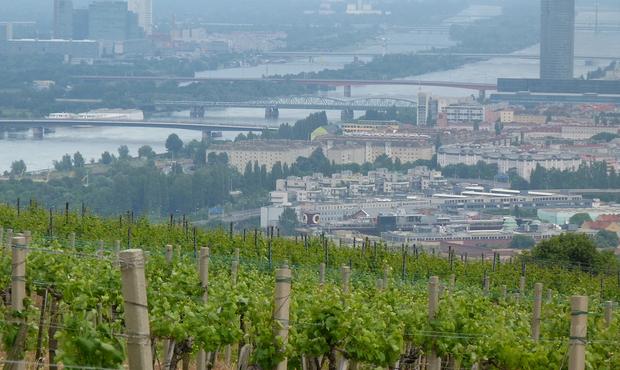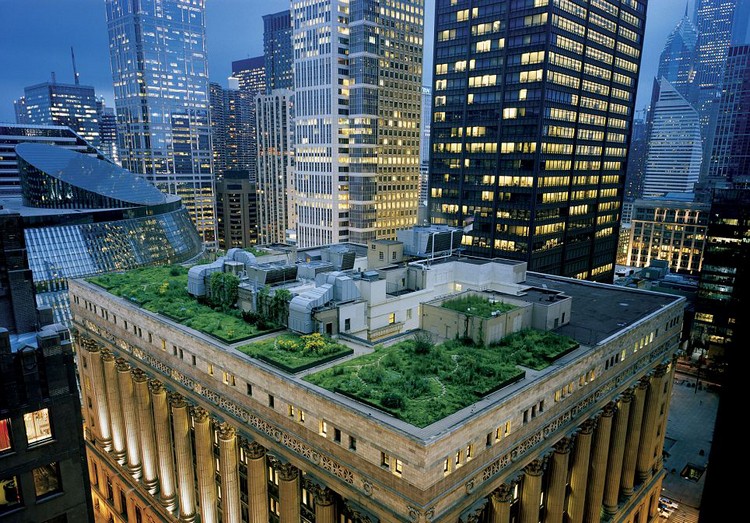URBAN
AGRICULTURE -1- THE CITY TO THE COUNTRYSIDE ...
This summer
during my holidays, I spent a lovely few days with my mother in Bordeaux.
During one of our rides, by car, I was struck by a small fact, insignificant at
first glance that inhabitants of Bordeaux know very well, without paying
attention, or at least without seeing its full impact.
I
won't use any name, because my goal is just to reflect and to make you reflect
with me on a real problem.
Chateau
XX, one of the most famous Chateaux of Bordeaux, is entirely contained in the
city. Over time, urban and industrial growth making their work of conquest of
new territories, this very famous Chateau with all its vineyards, was left
entirely in the city, surrounded by housing and industrial areas, and even
intersected by roads, with their train of roundabouts, traffic lights and
traffic jams.
Picture: http://www.lafdv.fr/images/20151022/3676_9195.jpg
It's
precisely at one of those traffic lights that my eye was attracted by something
small, quite insignificant, and very normal in a vineyard in September: the
lovely black grapes.
And what did
they have then, those grapes, that have since certainly been harvested, so to
get my attention?
They
were barely a few meters from the road, from my exhaust pipe, and from all
exhaust pipes of all cars, trucks and autobuses that pass by this road daily.
And I asked
myself the following question: wines of Château XX, true icons of great wines
of Bordeaux production, are they sometimes analyzed to know their urban
pollutant content?
I refer in
particular to hydrocarbon residues, to nitrogen oxides, to fluorinated
compounds, and especially to heavy metals, lead, zinc, cadmium or nickel, of
which it's known that the risks are far from trivial.
So I went to
the biggest bookstore in the city, known for the huge variety of available
books. In the city of Bordeaux, in one of the largest libraries of France,
books on Bordeaux wines are countless. So I looked for something on this. But
nothing. Nothing and nothing, not even a mere mention of a potential problem.
Obviously, nobody questions the quality of the wines of Château XX, nor all
Grands Crus of Bordeaux.
Then I decided
to search the internet what I could find on the subject. Nothing neither. It's
true that we can find a few documents showing the production of a pollution by
wineries, but nothing on the subject that concerns me.
Suddenly, I
had the idea to look if there is something about the risks of pollution in
urban gardens. Bingo! There are various publications, and various studies on
the subject, especially conducted by universities in the United States, Ukraine
and Germany, and which report risks, both of soil pollution (but this one does
not theoretically affect the fruit), and air pollution, therefore fruits
pollution by atmospheric deposition.
And
then it begs the question.
Picture: https://theurbanprospector.files.wordpress.com/2015/03/chicagofarm-thegreenhorns-wordpress.jpg
Indeed,
grapes are not washed and brushed one by one after the vintage, and atmospheric
deposition therefore likely arrive until the barrique. Molecules like nitrogen
oxides decompose probably during the winemaking process. But metals no.
Is it a
problem? Maybe not, it is possible that metals are at levels low enough so that
there is no health risk.
Yet,
according to the above links, plants placed within 10 meters of high traffic
roads have a high risk of exceeding European standards.
However, the
article also states that the plant barriers are among the most effective ways
to reduce the polluting effect. It is reasonable to assume that the bulk of the
harvest is in very low levels of pollutants. Or, in the case of wine, the grape
is not consumed alone, but mixed with millions of others. It is therefore
likely that the levels in wine are low.
But
apparently not many people concerned did verify, or in any case, to make it
public.
It
is likely that it does not present a public health problem. This is especially
true in this case, since this Chateau charges prices that don't put this
potential risk, to the level of risk to the general public (I saw just last
week here in Seville, in the shop gourmet of a department store, a bottle of
Chateau XX on sale at more than 450 € ...).
But this
situation, involuntary on behalf of Castle XX, who only saw the city moving
closer over time, without intervene, is common in agriculture. The more the
farm is close to the city, the more it is susceptible to it. This is also the
case of all "green belts" around cities, whose local farmers often
take advantage of the economic windfall that represents the possibility of
direct sale of farm products. Many have also converted their production in
organic to attract an ever-growing and eager audience of those
"authentic" products.
However,
this development that seems inevitable, of a progression from cities to the
countryside must not make us forget the negative consequences of this conquest:
reduction of agricultural land, disappearance of farmers, rural pollution, and
obligation to increase productivity to maintain food capacity.
Picture: http://menehayfarm.co.uk/wp-content/uploads/2016/01/website-intro.jpg
The media,
hungry for sensitive subjects, present too often the farmer as the main
responsible for the (supposed bad) food quality (increasingly challenged by
NGOs with opaque objectives). But should we evade the growing responsibility of
urbanization?
Is the
farmer responsible for the pollution caused by urban growth? We don't speak of
this pollution and its effects on food, then it is, in my opinion, more
worrying that the use of pesticides.
The reality
on pesticides is made up in order to accuse them, and also their manufacturers
and their users. It is fashionable, we distrust everything. Therefore let's
provide suspicion to those that want! It's so easy to sell...
The
reality of pollution is hidden because there is no one to blame, no scapegoat.
In this case, the accusers (the producers of the show and viewers themselves)
would find themselves directly on the dock. It's quite difficult to sell ...
...AND THE
COUNTRYSIDE TO THE CITY.
But to go
further in this reflection, urban agriculture is in full vogue, especially in
the environmentalist community.
Projects of
gardens and orchards on roofs, in courtyards and on balconies are legion. There
we can produce without pesticide, only by organic techniques, fruits and
vegetables we are sure they are healthy.
Is that
true?
Is urban
pollution better for health that residues of synthetic pesticides?
The
revegetation of roofs, facades and buildings is excellent for biodiversity, for
health of bees and birds, as well as for air quality in large cities, there is
no doubt. But to make a supposedly healthy food resources, there is a step that
personally I will not cross ...
Picture: http://deavita.fr/wp-content/uploads/2016/02/jardin-sur-le-toit-pleine-ville-ultra-moderne.jpg
At least
with pesticide residues, there are serious and numerous references, we can
always discuss, but which exist. Very long and comprehensive studies are
conducted to determine the action on the health and environment of all licensed
molecules. Teams to assess the molecules consist of scientists, physicians and
agronomists, all highly skilled and controlled. We can trust their conclusions,
whatever some think.
Yet some
don't hesitate to affirm that the origin of pollutants could be in pesticides
(eg permaculture enthusiasts http://www.permaculteurs.com/article/risques-de-pollution-au-potager
/).
Does
anyone know a pesticide containing lead, cadmium or nickel? There are not any.
It's so easy to accuse pesticides of anything, and of the rest also...
For
industrial and urban pollutants, there are few references and standards are
only for heavy metals. Yet some plants, in particular leaf-foods like salads,
spinach, cabbage, and other leaf herbs are particularly exposed to any
pollutants having a large collecting area, which increasingly is consumed. This
is also the case for a food such as peppers, food that weighs little but has a
relation weight/surface very unfavorable.
So, my dear
urban gardeners, convinced that your fruits and vegetables are healthier than
the ones you buy at the supermarket, you have to know that you probably eat a
large number of pollutants for which you are laboratory mice yourselves ...





Aucun commentaire:
Enregistrer un commentaire